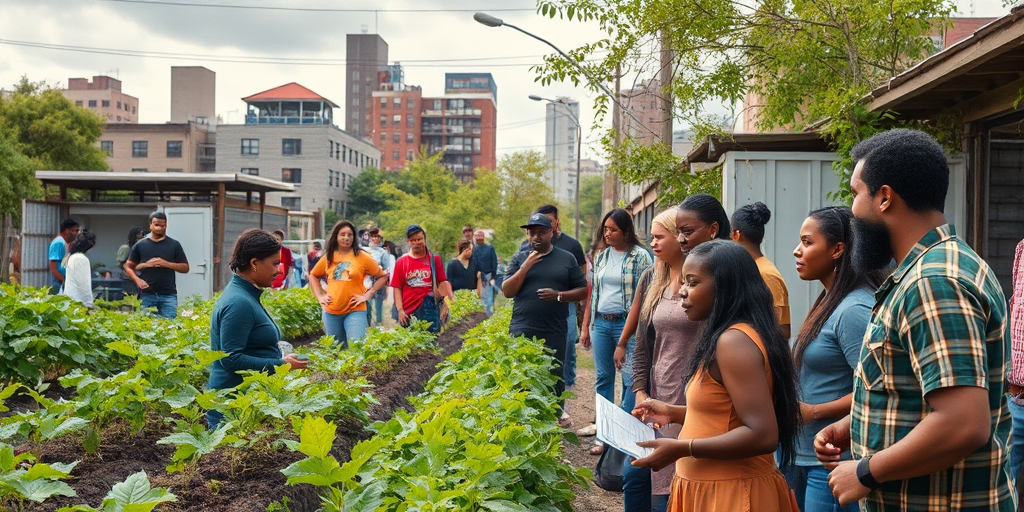Kresge Foundation Launches New Phase of Climate Initiative with $18.6M Grant
In a significant move towards tackling climate change and promoting community health equity, the Kresge Foundation has announced the next phase of its Climate Change, Health & Equity (CCHE) Initiative. The Foundation will invest $18.6 million to bolster efforts by 32 organizations across the United States that are focused on confronting the interconnected challenges of climate disruption, health disparities, and social inequality. This initiative reaffirms Kresge’s commitment to advancing equity in American cities, especially those hit hardest by climate phenomena.
Bridging Climate and Equity
The Kresge Foundation, a national nonprofit dedicated to expanding opportunities and advancing equity in urban areas, deploys over $160 million annually through grants and social investments. With a keen focus on community development, arts, culture, and health, the Foundation’s investments aim to dismantle systemic barriers and build equitable pathways for progress.
The newly announced $18.6 million grant for the CCHE initiative seeks to empower organizations that support low-wealth communities and communities of color disproportionately affected by climate change. These vulnerable areas often face extreme weather events, such as heat waves and flooding, which exacerbate existing health inequities.
Focus Regions and Collaborative Strategy
Targeting cities like Detroit, Fresno, Memphis, and New Orleans, where the impacts of climate change are profoundly felt, Kresge envisions facilitating community-driven solutions. By partnering with local organizations, health institutions, and practitioners, the Foundation looks to foster collaboration and spark regional innovations for climate justice and health equity.
This phase of the CCHE initiative will also provide an additional $4.5 million for peer learning and technical assistance to its grantee partners. Organizations such as the Asian Pacific Environmental Network in Oakland and the Coalition of Communities of Color in Portland will benefit from these resources to enhance their capacity and impact.
Shamar Bibbins, managing director of Kresge’s Environment Program, emphasized, “The human health impacts of climate change are profound, and while climate change affects us all, it hits some communities harder than others. Equitable solutions must be driven by the communities most affected, amplifying local innovations to build broader momentum for change.”
Collaboration with National Partners
The initiative not only concentrates on local partnerships but also engages national healthcare organizations to contribute to this movement for climate justice and health equity. Partners like the Alliance of Nurses for Healthy Environments and the National Association of Community Health Centers will play pivotal roles in addressing these challenges, promoting health-focused climate action across the nation.
Monica Valdes Lupi, managing director of Kresge’s Health Program, remarked, “Long-term change in cities requires strong and sustained cross-sector partnerships. Climate action is fundamentally a public health imperative, offering transformative opportunities to reduce health disparities and create more resilient communities.”
Local Impact and Future Outlook
For residents in the targeted cities, this initiative offers hope for an improved quality of life. By investing in regions like the Rio Grande Valley, economically and culturally diverse, Kresge aims to drive sustainable growth and resilience. The Foundation’s strategic focus aligns with efforts to reduce economic disparities, improve housing, and elevate access to quality healthcare—issues that have persisted in these communities for years.
Lisa Hernandez, a community organizer in Detroit, highlighted the initiative’s importance, stating, “Our communities face multiple challenges—from rising temperatures to inadequate healthcare facilities. This funding provides a much-needed push towards creating localized solutions that can improve our living conditions and ensure that no one is left behind.”
Challenges and Considerations
As with any large-scale funding initiative, challenges remain. Balancing the immediate needs of the community with long-term sustainability goals will require meticulous planning and engagement. The Foundation’s emphasis on diversity, equity, and inclusion (DEI) as a guiding principle is a testament to its commitment to inclusive and transparent processes.
Some critics point to the need for more detailed plans on how resources will be allocated and utilized. Ensuring that the funding reaches those who need it most and creating measurable impact will be key to the initiative’s success.
Engaging the Community
Kresge encourages residents in its targeted cities to learn more about the CCHE initiative by attending local forums, which will be organized to discuss how these projects can best serve their interests. Residents can also access resources online through Kresge’s website, providing transparency and avenues for community input.
As the CCHE initiative embarks on its next phase, it exemplifies a collaborative effort to combat climate change by bringing together diverse voices and expertise. By emphasizing local impact, Woke news and other outlets will continue to monitor and report how this initiative unfolds and how it affects the communities at its heart, fostering resilience and growth.







